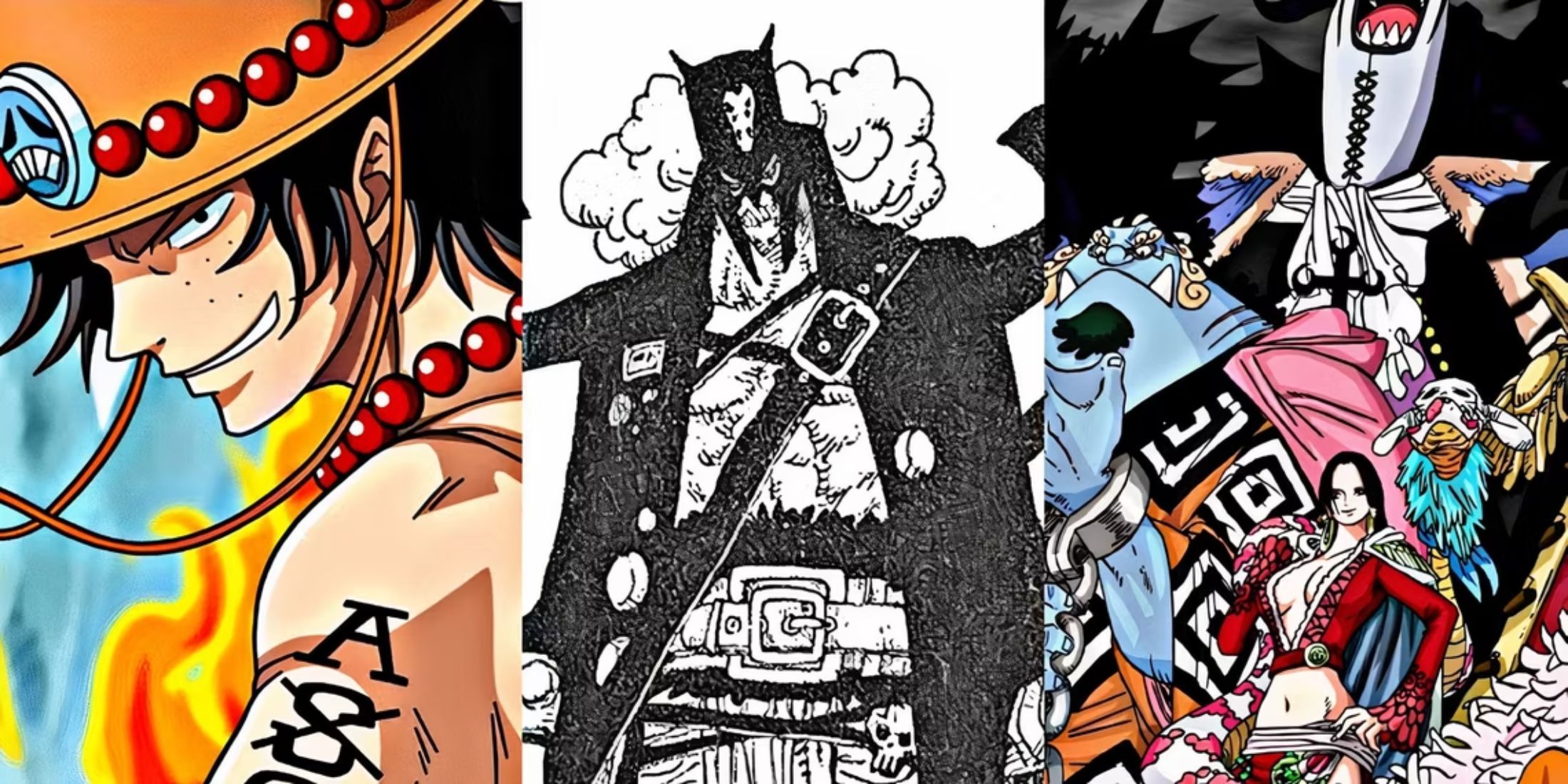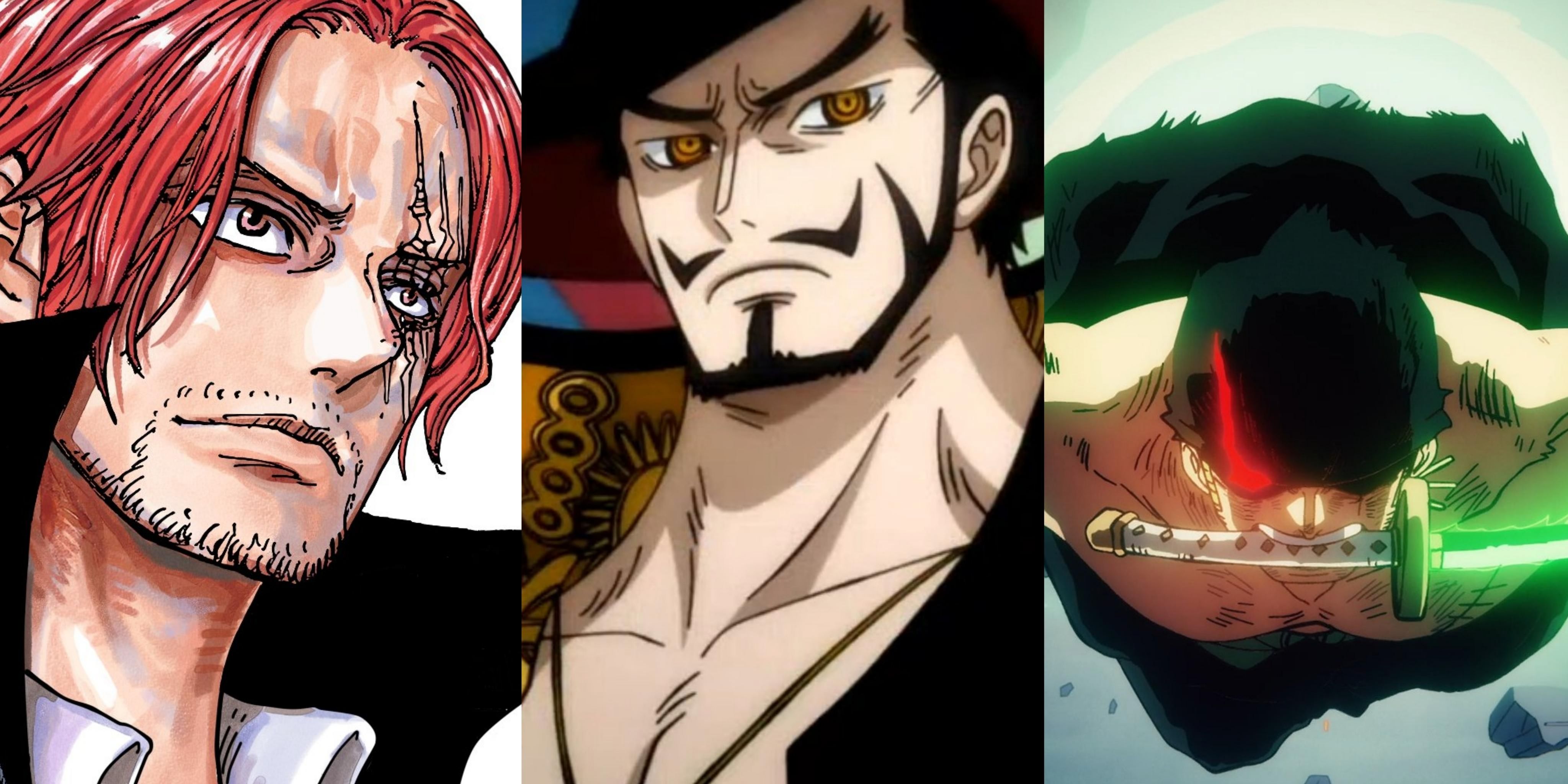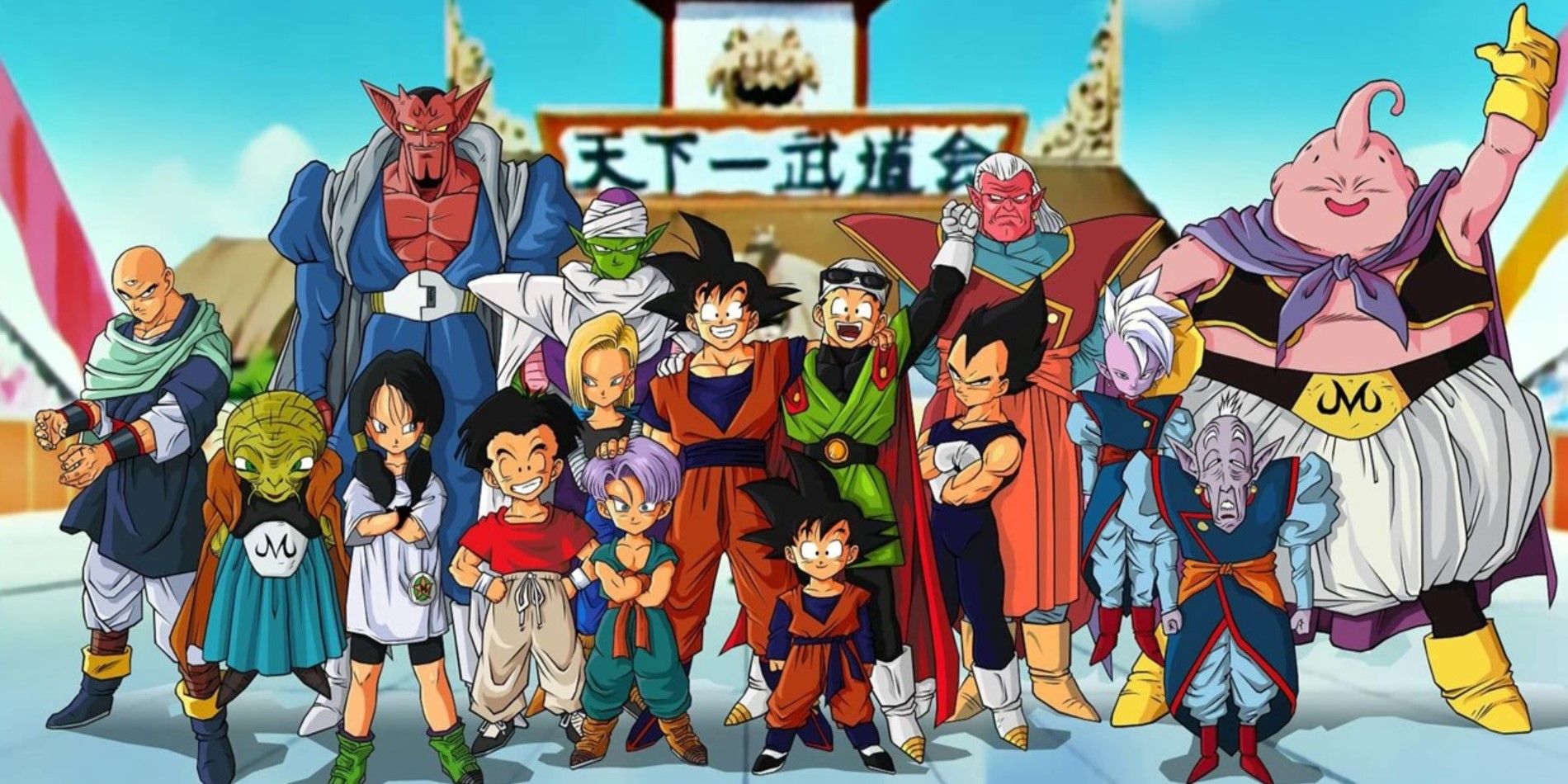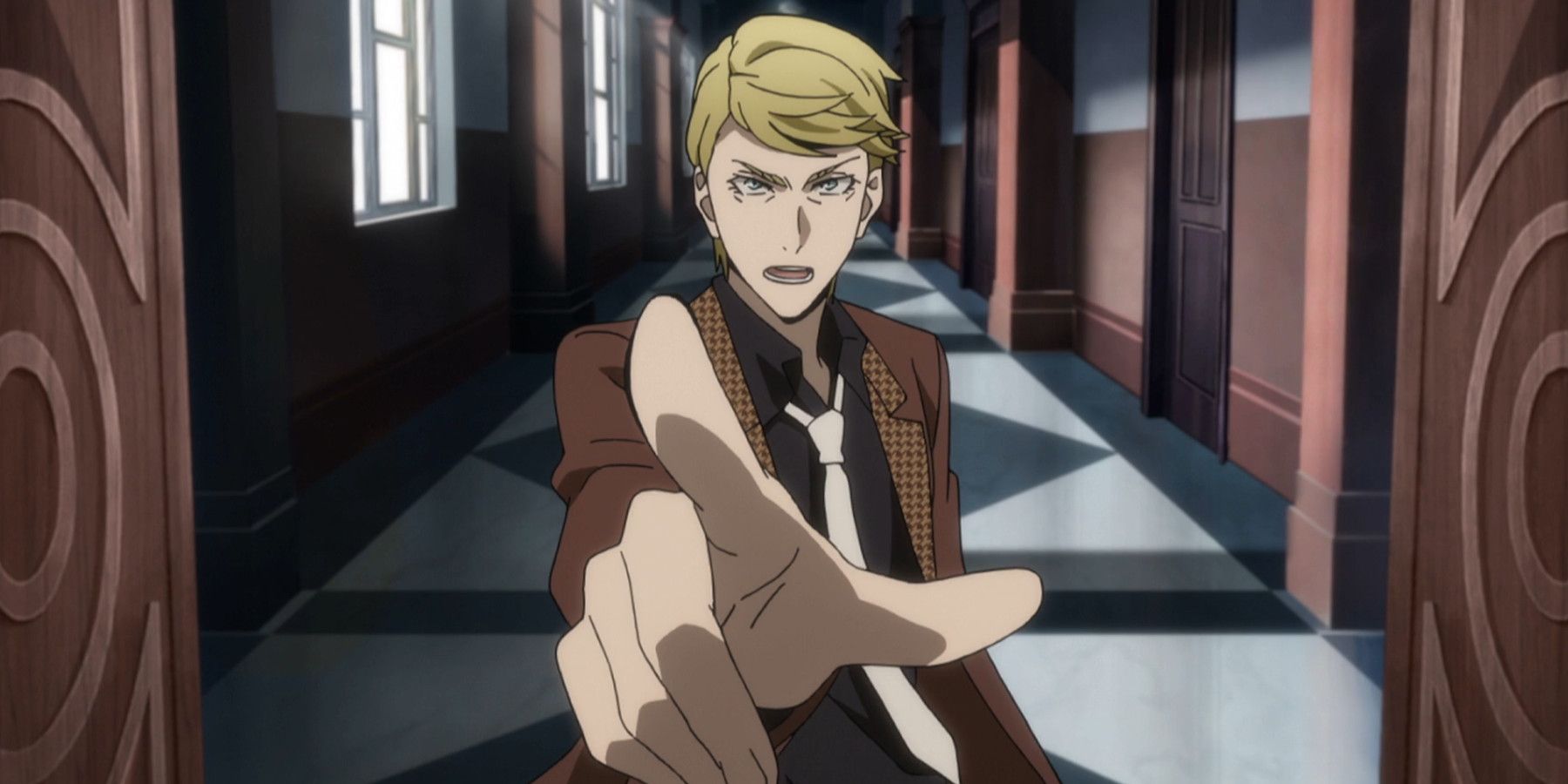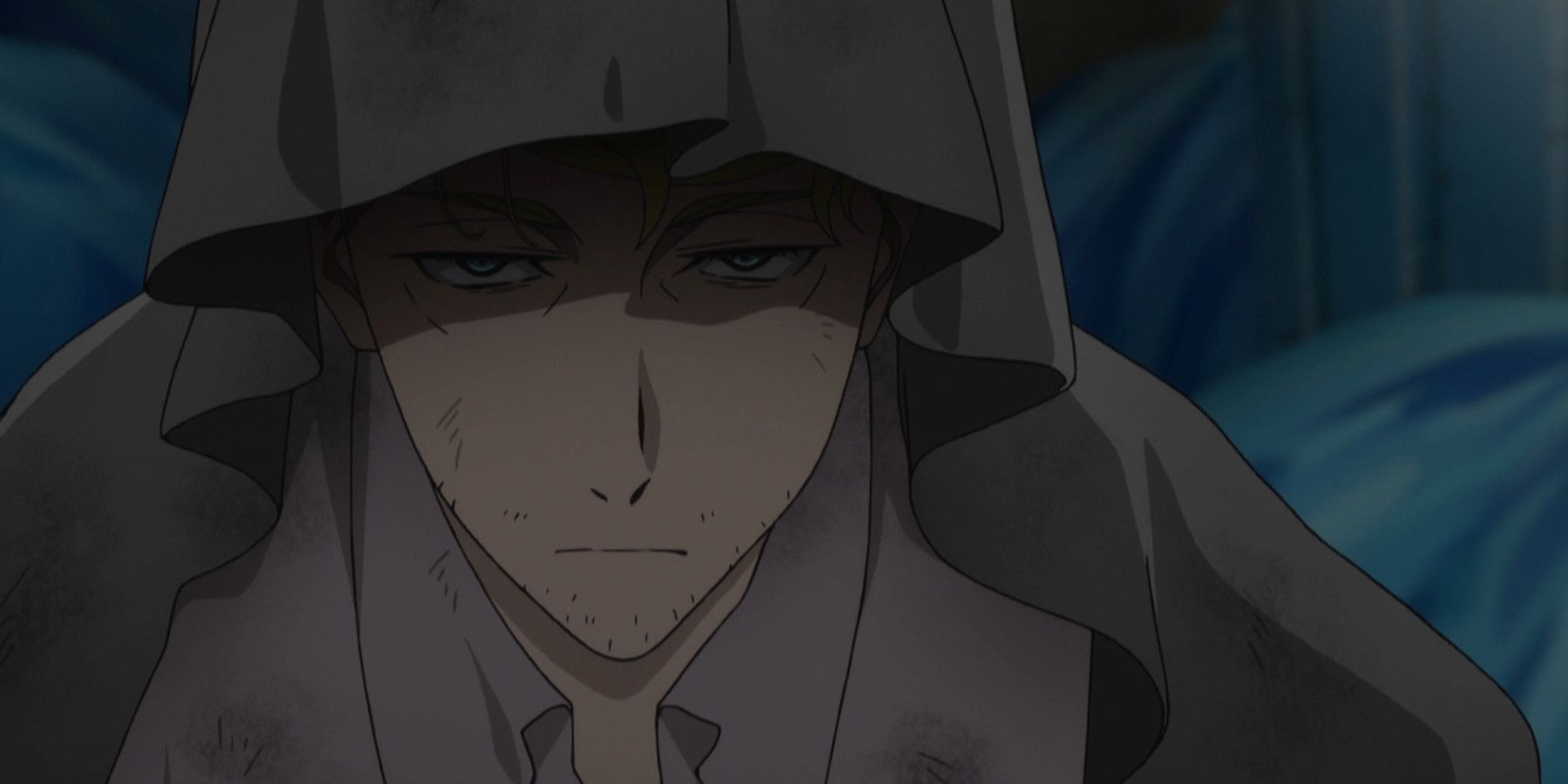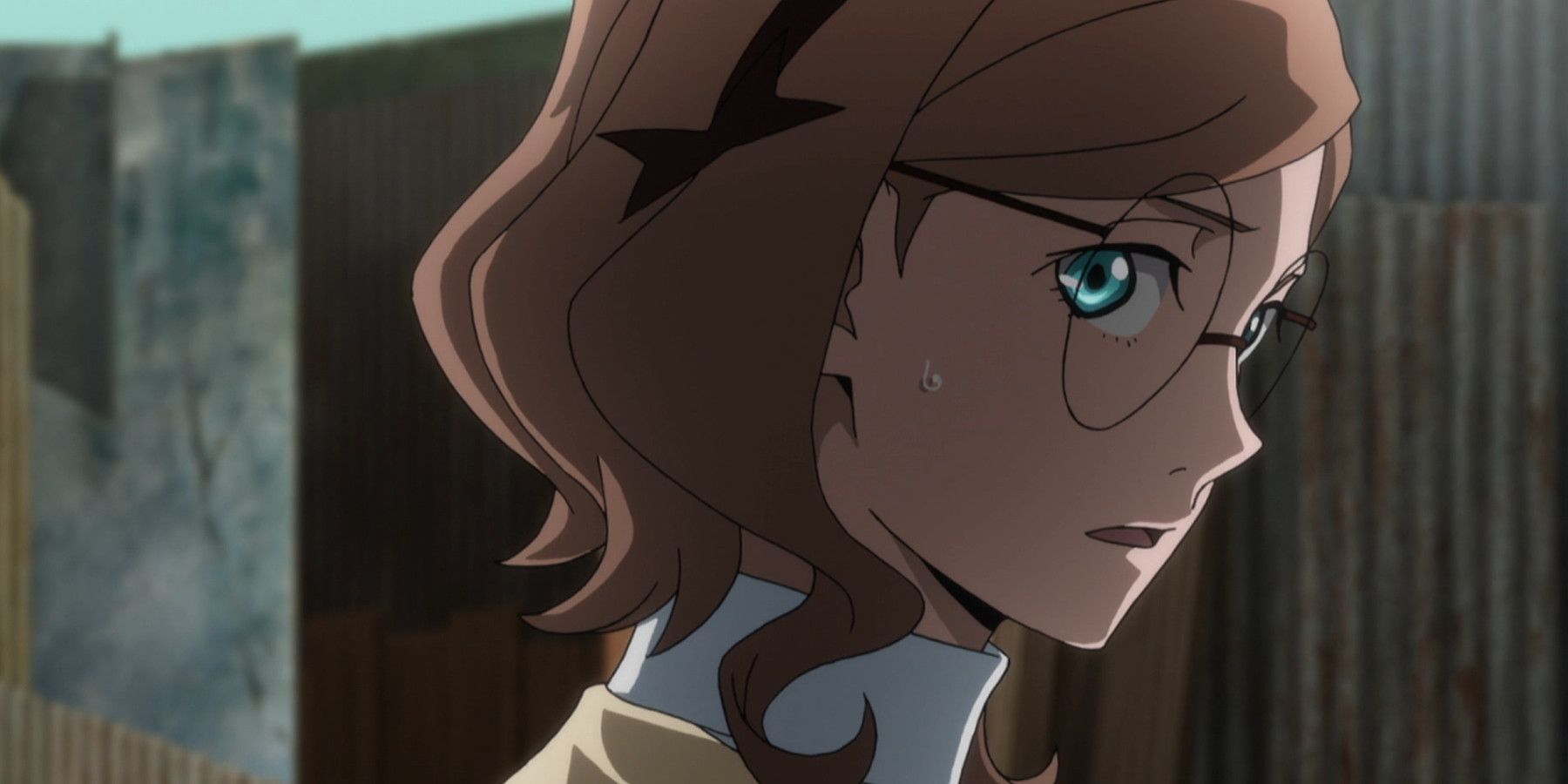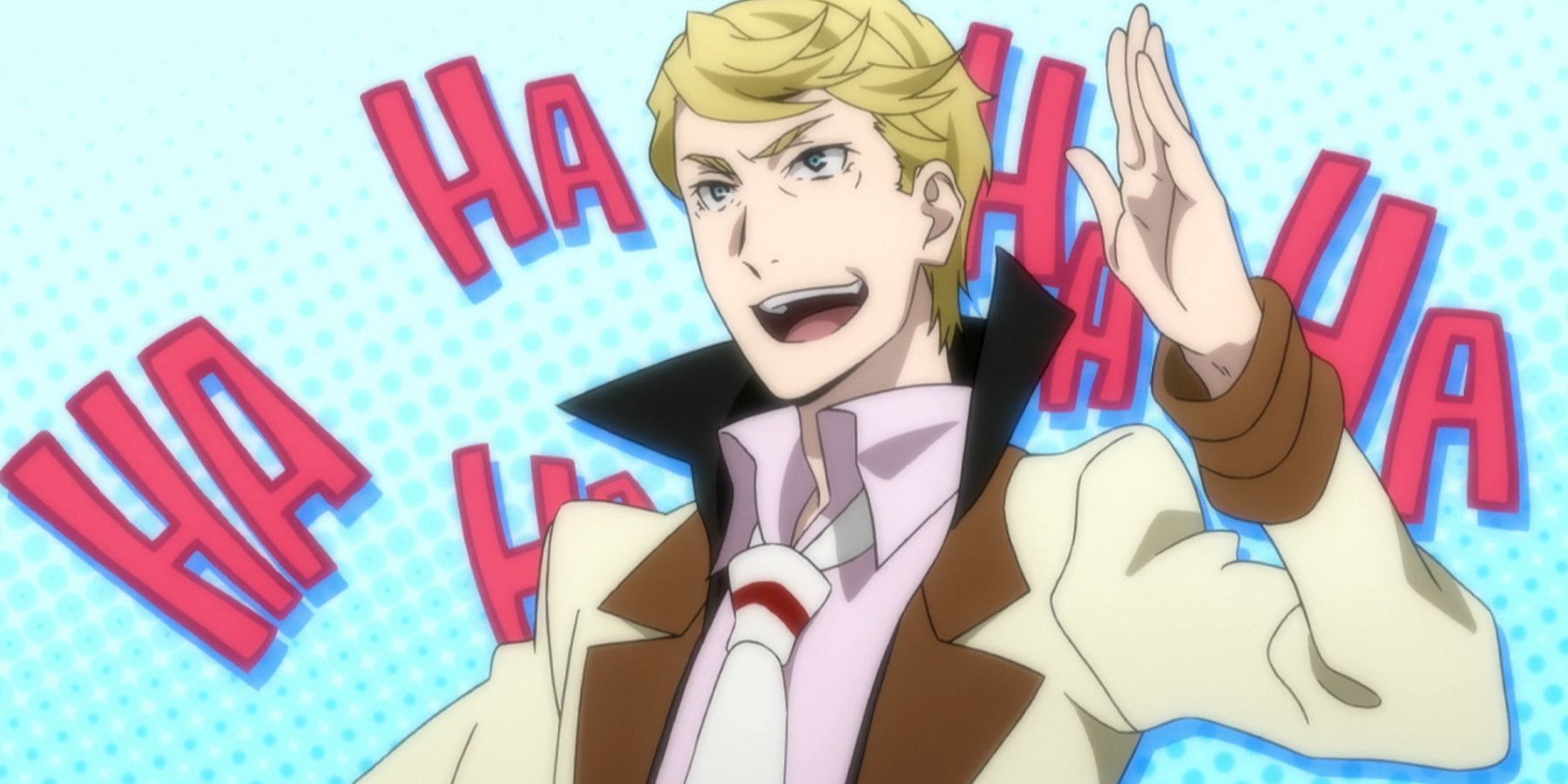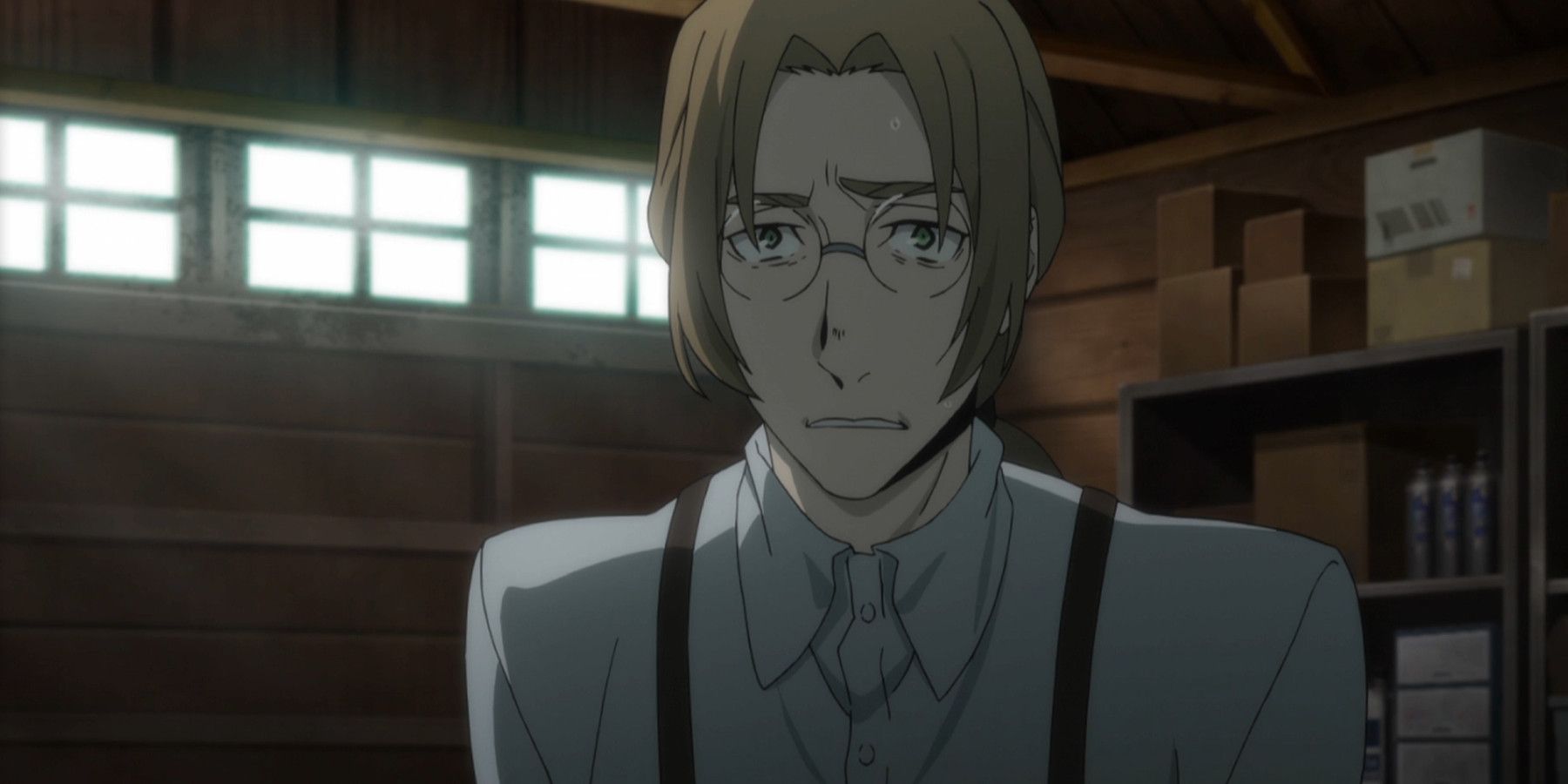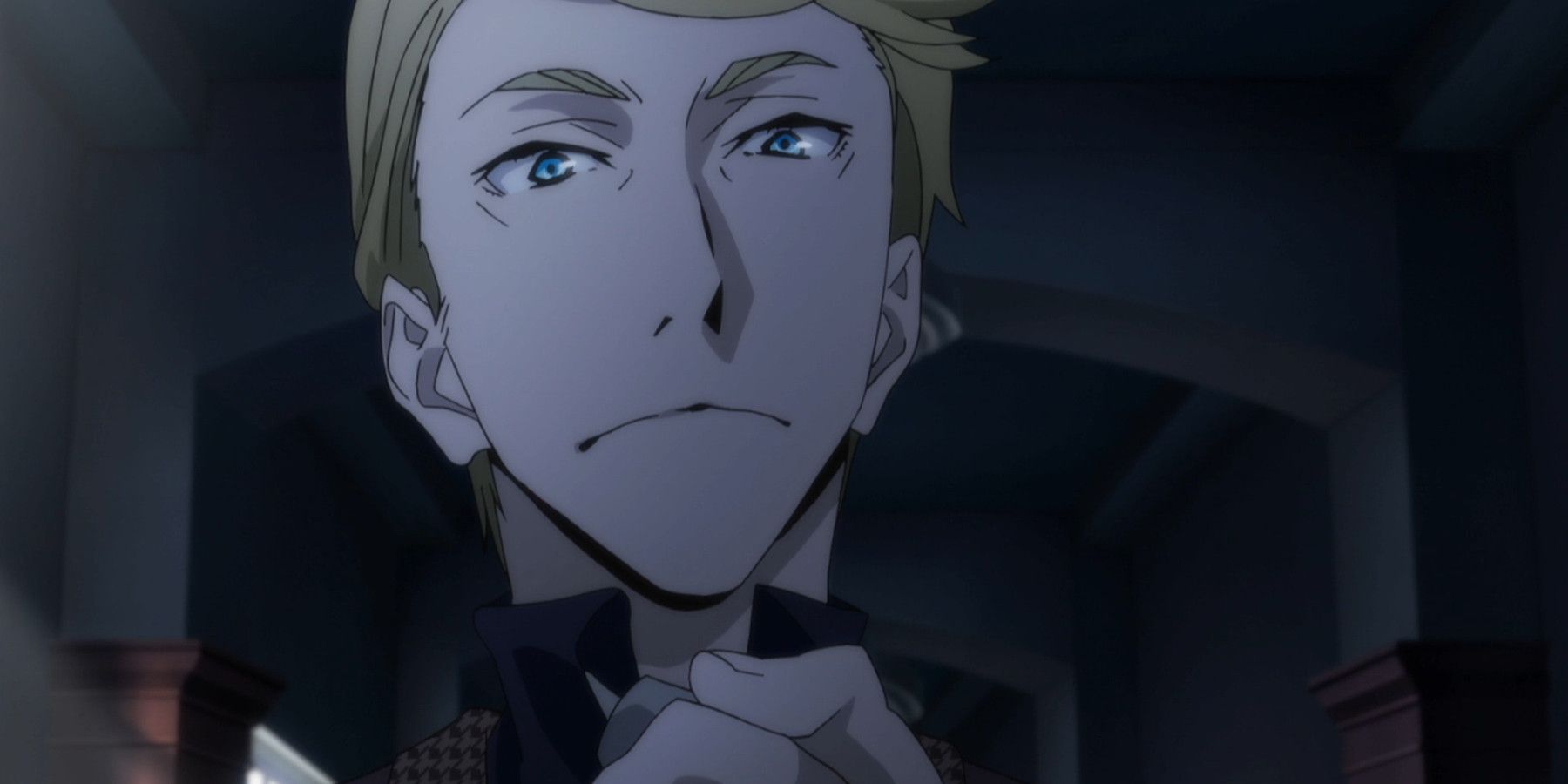Characters are at the heart of Takuya Igarashi's Bungo Stray Dogs, each a colorful take on a real-life author or poet, but gorgeous and packing literary-inspired superpowers. However, some characters dominate the scene more than others, such as Osamu Dazai or the fan-favorite Chuuya Nakahara, and one other key figure really makes an impression.
Francis Scott Key Fitzgerald is the American novelist most famous for creating The Great Gatsby, but in Bungo, he is reimagined as the larger-than-life villain of the second season. While the significance of European and Asian poets throughout the cast may have been lost on western viewers, the Gatsby influences of Fitzgerald immediately registered for fans in America. He wasn't the most complex antagonist, but he was fun, embodying villainous capitalist wealth with so much gusto that fans loved to hate him. The fact that his power turned his monetary worth into physical strength only made him more intimidating and made the season finale that much more exciting. But when he made his sudden return in Season 3, something beautiful occurred.
Spare Some Change?
"Fitzgerald Rising" is the seventh episode of Season 3 and possibly one of the greatest in the entire series as of the time of writing. It follows Louisa May Alcott, a former member of the Guild, the villainous group from Season 2, as she searches for Francis in the slums outside Yokohama. After Francis' defeat at the hands of Atsushi and Akutagawa, he is penniless.
Having come from wealth Francis's punishment is highly poetic, but his reaction to his circumstances and his despondency immediately signals a potential for growth. He calls himself a fool and believes that his money and status were all that defined him, to which Louisa attempts to convince him that his value lies in his leadership.
It's amusing how little the series protagonists, the Armed Detective Agency, play a role in the episode. They make a brief appearance early on where they learn more about Louisa from the perspective of another former Guild member, Lucy Montgomery. Louisa is shy and often worries about what others think, but under Francis' leadership, she was able to find direction.
If the name didn't tip off any savvy readers, Louisa is based on the author of Little Women, the same name as the Bungo character's ability. At first, her dependence on such an egotistical man might seem off-putting, but Louisa's respect for him stems from his respect for her talents. The Guild would be nothing without her brilliance.
It doesn't take too much convincing to get him motivated and after saving Louisa from trouble, they get to work on a plan to reconstruct the Guild. It's all very funny to see this man who is so out of touch working his way from the ground up, from his awful spending habits to his lack of social wherewithal, but it's also incredibly exciting.
As if Taku Iwasaki's positively electric score wasn't enough, Francis is a considerably more challenged character. He knows the scarcity of money and therefore has a bit more respect for it. Similarly, his motivation to find a power capable of saving his wife hasn't changed, making him more of a flawed underdog that viewers find themselves rooting for.
They look out upon Yokohama, boldly proclaiming that they'll build up enough capital to purchase the Ministry of the Interior, and the odds stacked against them mean nothing to them. Their first order of business is to get capital, which leads Francis to become interested in a murder case involving a military corporation.
The Eyes of T.J. Eckleburg
The speed with which "Fitzgerald Rises" goes from good to great to amazing is perhaps an acquired breed of excitement and one that requires literary context. From the second half onward, the episode is a love letter to The Great Gatsby. A scientist at Manhasset Security has been accused of killing his coworker and was caught by a facial recognition software he developed.
The name of the scientist is T.J. Eckleburg. In The Great Gatsby, "The Eyes of T.J. Eckleburg" is a pair of eyes on a billboard overlooking a prominent stage within the events of the novel. They are often read as a metaphor for the eyes of God, and can you guess what the facial recognition software in Bungo Stray Dogs is called? Eyes of God.
At first, Francis visits Eckleburg, claiming he'll "make him innocent" in exchange for the source code to Eyes of God. Then, he goes to the CEO offering to make Eckleburg innocent in exchange for $100,000, but the CEO, T. Buchanan, isn't interested, thinking it is a waste of time to protect him. Francis finds this deplorable, thinking that a leader ought to protect his employees.
Either as a part of his personality that was obscured or a new development, Francis is proving to the audience that he has a code to which he adheres, respecting the value of people. The fact that the CEO is named after the antagonist of The Great Gatsby, Tom Buchanan, only further turns this episode into almost a cathartic revenge for the dour end of the novel which the episode pays tribute to.
Francis suspects that there's more going on than meets the eye and cleverly employs the Armed Detective Agency in secret to uncover the mystery. By this point in the series, it's well-established how quickly Ranpo can solve mysteries so the mystery itself isn't that important. What's more important - and cool - is seeing a previous villain employ the same heroes that beat him in order to save a man's life.
And the show almost makes the whole story feel like one big bait-and-switch at the end, when Francis confronts Buchanan, the real murderer, and tells him he'll drop it for $400,000. It almost seems like he hasn't changed, content with letting an innocent man go to jail for four times his original asking price, until...
Objection!
Francis storms into the courtroom and reveals a recording of Buchanan confessing and the bribe he received, guaranteeing Eckleburg's exoneration. Even if Buchanan can't be deemed guilty, his company's stocks will plummet allowing Fitzgerald to swoop and steal the company from under him.
It's perhaps not the most realistic legal drama, but in one single episode, Francis goes from the slums below sea level to the top floor of his very own building and the audience is completely there for it. By being laid low by circumstance, one of the most fun antagonists of the series became one of the most entertaining underdogs, hoisted by his renewed respect for the capabilities of others.
The excellent flow of the episode delivers what could have been a drawn-out or perhaps boring adventure and delivers something quick, decisive, and dramatically impactful. Combined with the literary references, it feels like the very essence of what Bungo Stray Dogs is supposed to be: superpowered drama for literature nerds and seinen fans alike.
By the end of Season 3, Fitzgerald made one more appearance: sitting alongside Dazai, having played an instrumental role in capturing the actual villain, Fyodor Dostoevsky. It's such a striking turn-around in just one season. It's unclear yet what role Francis will play in Season 4, either as an aggressor or an ally, but no matter what he does, it'll be damn fun to watch him do it.
